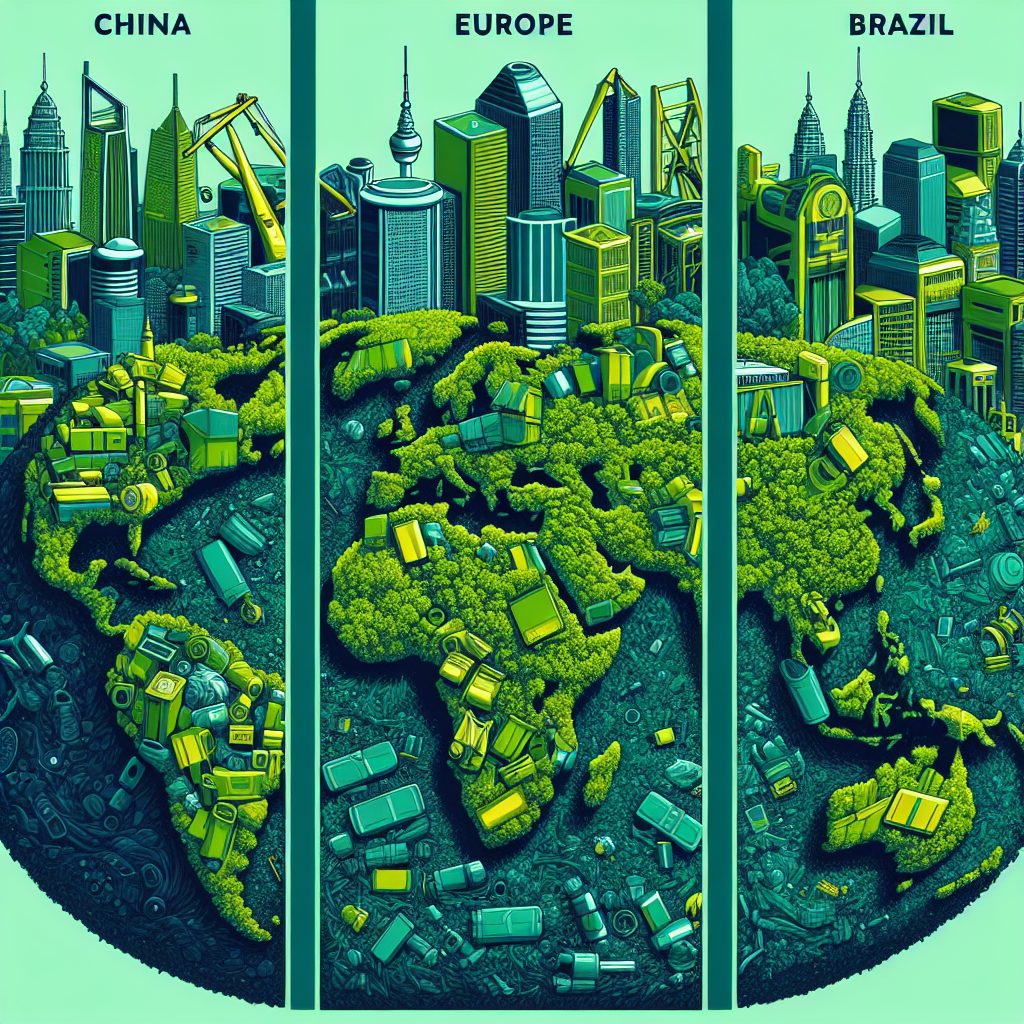Blog Ecobraz Eigre

Global comparison: how China, Europe and Brazil deal with corporate e-waste
Corporate e-waste management differs significantly between China, Europe and Brazil. This article looks at legislation, practices and challenges in the collection and safe disposal of e-waste, highlighting the importance of compliance with local regulations to mitigate environmental impacts.
Regulatory Context in China
China has stepped up its environmental policies for e-waste, focusing on the circular economy and extended manufacturer responsibility (EPR). According to the China's Ministry of the Environment, legislation obliges the segregation, collection and proper recycling of electronic components. Large industrial centers implement strict systems to prevent environmental contamination.
European Regulatory Framework
The European Union is a benchmark in environmental regulation for electronic waste, with the 2012/19/EU Directive on Electrical and Electronic Equipment (WEEE Directive) being crucial. The directive imposes shared responsibility between suppliers, operators and waste managers, guaranteeing high standards for electronic waste collection. In addition, guidelines from the European Chemicals Agency (ECHA) reinforce safe methods for disposing of digital media, such as hard disks and other supports.
Brazilian Legislative Panorama
Brazil faces challenges in standardizing the treatment of corporate e-waste. The National Solid Waste Policy (PNRS) - Law No. 12.305/2010 - establishes guidelines for integrated management and shared responsibility. Bodies such as the CETESB and the National Solid Waste Management Information System (SINIR) play a strategic role in monitoring and inspection. For the safe disposal of data storage equipment, specialized solutions are recommended, such as the safe sanitization of hard drives and media according to practices recommended in the electronic scheduling.
Practical and Technological Comparison
While Europe has a consolidated infrastructure and detailed legislation for the treatment of electronic waste, China has been expanding investments in recycling technologies and massive reuse, in line with strict environmental policies. Brazil is still developing, with public and private initiatives to improve reverse logistics and encourage proper disposal, but still with gaps in enforcement and private sector engagement.
Implications for Decision Makers
For managers responsible for ESG, EHS, legal and procurement, it is essential to understand the regulatory and operational diversity of each region to ensure compliance and sustainability. Implementing efficient e-waste collection protocols and following robust processes for the safe disposal of digital media avoids legal and environmental risks.
Final Thoughts
The global harmonization of rules for corporate e-waste is still a challenge, but the convergence of practices in the main regions signals a constant evolution. Adopting technical, sustainable approaches backed by official legislation is essential for the responsible management of corporate e-waste.

Deixe um comentário
O seu endereço de e-mail não será publicado. Campos obrigatórios são marcados com *